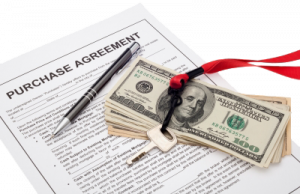Is My Deposit Refundable? How Much is Enough?
An earnest money deposit, also known as “good-faith deposit,” is the money that a homebuyer pledges up front as part of an offer to purchase a property.
 Here are answers to the most common questions regarding a buyer deposit:
Here are answers to the most common questions regarding a buyer deposit:
How much?
There is no prescribed amount for a buyer deposit. It will be whatever is negotiated between the buyer and seller.
Buyer deposits commonly fall around 1 percent of the offer price, though they can legally be as little as $1. In a buyer’s market, they tend to decrease. In a hot market, they can balloon to as much as the buyer’s down payment.
A high deposit can communicate to the seller a buyer’s strength and eagerness to purchase.
Who gets the deposit?
The buyer deposit is typically held in a client trust account with the escrow company overseeing the transaction. It can be in the form of a personal check, money order, cashier’s check or electronic transfer, but the escrow will not accept cash.
It’s always wise for a buyer with an accepted offer to send their deposit directly to escrow, not to an agent or the seller.
Do I get credit for my deposit?
Of course! Your earnest money is credited toward the full purchase price, and a portion of your down payment. In some cases, such as with 100% VA financing, the deposit is actually rebated back to the buyer at the close of the deal to be used for the buyer’s closing costs.
Is my deposit refundable?
Real estate contracts have provisions for inspection, appraisal and loan contingencies. In California, the default is 17 days for the buyer to do all their inspections. If the buyer encounters a problem and wants to cancel the transaction during their inspection periods, they should be due a refund of their deposit, minus any expenses that were incurred for buyer reports. But if the buyer waited until the last moment to cancel, the seller could very well claim the deposit.
The escrow company can only act on the written instructions of buyer and seller. So, effectively, a buyer has to agree to surrender their deposit to the seller, and vice-versa. If there is a dispute, the money will sit in the trust account.
A buyer or seller could sue the other party for the deposit. But after three years, if the money is still in the trust account, it could be seized by the state.
Thinking about buying or selling a home? Want to discuss the best strategies with a Certified Homeowner Advocate? Call us today at 951-778-9700 or use the form below and ask for a 10-minute consultation.
illustration courtesy of phasinphoto | freedigitialphotos.net (Hover over photo for credit and link).
Contact Form
Earnest Money Deposit | Buyer Deposit | Good Faith Deposit | Buying a Home in Riverside | Selling a Home in Riverside | Brian Bean and Tim Hardin Dream Big
